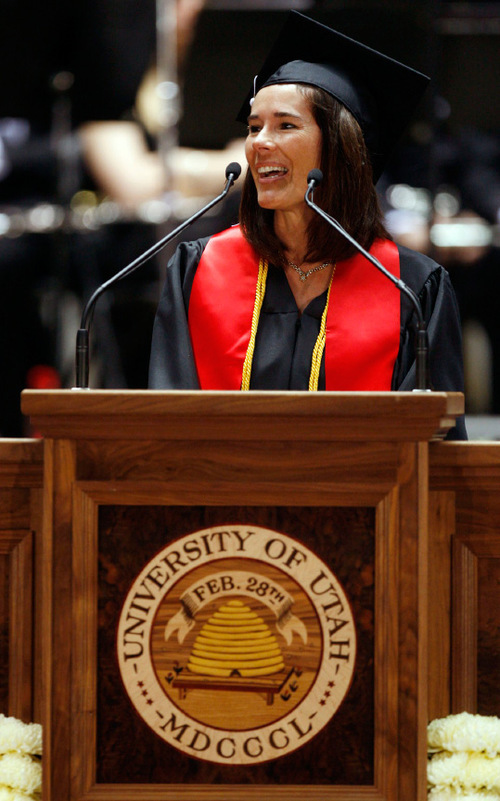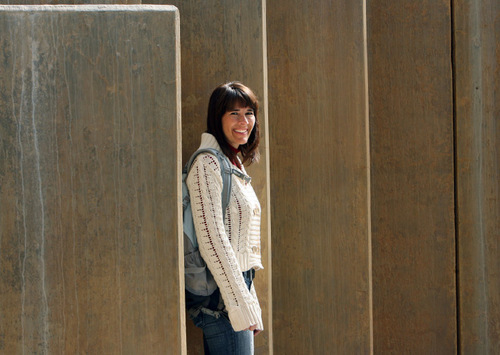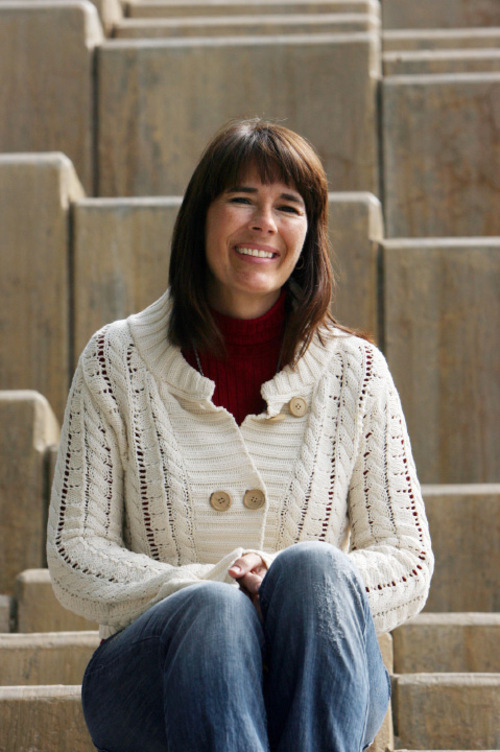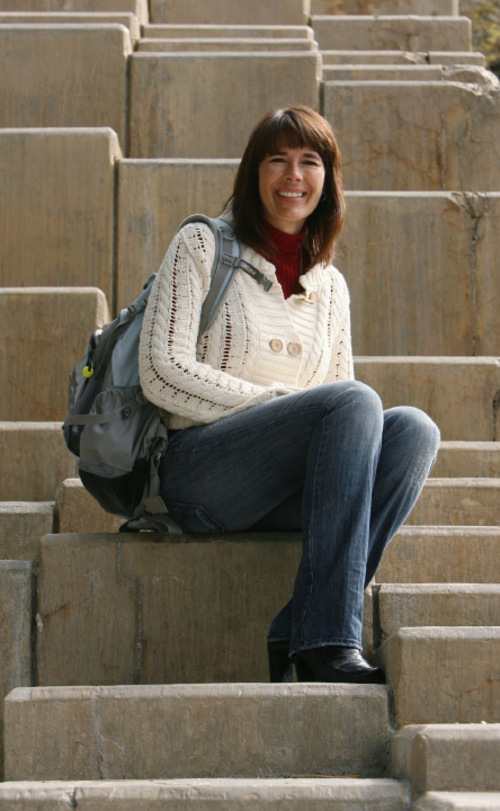This is an archived article that was published on sltrib.com in 2010, and information in the article may be outdated. It is provided only for personal research purposes and may not be reprinted.
Jody Farley started college in the early 1980s, but life had other plans. Marriage and children delayed her graduation by a quarter-century.
Utah women marry younger, have children sooner and have more of them than their peers in all other states. This demographic quirk is often cited as the reason women don't attend college at the same rate as men, a growing cause of concern among higher-education leaders. Some fear if trends hold, Utah will lose its competitive edge.
Nationally, women make up the majority of college students, currently 57 percent compared with 49 percent in Utah.
Farley's story may seem typical of Utah, but in one key way, it is the exception. The Holladay woman eventually graduated.
According to Utah Valley University scholar Susan Madsen, women who put off completing college until after their children are grown rarely get around to earning a degree.
"For many of the women who come back, something critical happened. They'll be pushed back into it. They lose their husbands or divorce their husbands. But it is more likely they will graduate if they go right out of high school," said Madsen, an associate professor of management. "Ninety percent of [Utah's] young women believe that they will, at sometime in their life, get a college degree. The problem is the probability of that gets low as time goes by."
Madsen has been exploring women's low college participation and what can be done to reverse the trend. At a conference Friday morning at UVU, she will present her findings from the Utah Women and Education Project, based on in-depth surveys of 245 women, age 18 to 32.
The Board of Regents hopes to increase the portion of Utah adults with degrees from 39 percent to at least 56 percent by 2020. Achieving that goal will require getting Utah women to participate at the same rates as men — or as women in other states.
"Since Utah currently ranks below the national average in percentage of women attending postsecondary institutions, studies like Dr. Madsen's are extremely important in helping encourage women to obtain college degrees," said William Sederburg, Utah's commissioner of higher education, who will also speak at the UVU conference.
When it comes to women and college participation, Utah is an outlier. Nationally, women are projected to account for 59 percent of undergraduate and 61 percent of graduate enrollments by 2019, according to the National Center for Education Statistics. In 2008, women earned 57 percent of bachelor's degrees, 62 percent of associate's degrees and 51 percent of doctorate degrees, marking huge gains in education attainment for women — advances not shared by women in the Beehive State.
While the freshman classes at the University of Utah and BYU are evenly split between the genders most years, men earn about 55 percent of the bachelor's degrees — and the gap is widening. According to U. data, the state's flagship university awarded 47.5 percent of its 2000 degrees to women. That share slipped to 45.2 percent this year.
The disparity is relatively recent. In the early 1990s, women made up the majority of enrollments at Utah's public campuses, but in 1993, male participation began outpacing that of females. Women now account for 49 percent, Madsen said.
She suspects many young women don't fully appreciate the economic and social value of a college degree or are unaware of the financial aid and advising services to help them through.
Madsen and her colleagues recruited women from every corner of the state and diverse social backgrounds to participate in the UVU study, asking them open-ended questions about their attitudes toward education. Researchers spent two hours with each subject.
"They are married and unmarried, some with kids out of wedlock," Madsen said. "A couple slept in cars because their fathers kicked them out after graduation."
Conventional wisdom holds that Utah's gender gap is connected to the influence of The Church of Jesus Christ of Latter-day Saints, which celebrates marriage and family. But culture explains only part of the puzzle, especially since church leaders also extoll the virtues of education, Madsen said.
"Lots of young women who dropped out said they wanted to be in college and they did and it was great, but they dropped out after the first semester," she said. "That was their goal — to go to college, not to graduate. They're thinking they're successful if they just go."
Farley began at BYU out of high school, but she soon transferred to marry a medical student at the U. Later, she had two children and started working to support the family. Like so many other young moms in college, she dropped out at 22.
But she never took her eyes off the prize. With two of her four children graduates of the U., she returned to campus two years ago and loved it.
"It was really rejuvenating," Farley said. "There is such an energy about learning and being around the kids. It was much easier. People don't trust the skills they have gained. You forget you can learn."
Last spring, Farley graduated cum laude with her bachelor's degree in family and consumer studies and was selected to give the student commencement address. And she has become a strong advocate for women's higher education.
"It was very important for me that my daughter and daughters-in-law finish school. … There is so much security in having a degree. Knowing what I know now, I would have tried to stay in school," she said.
bmaffly@sltrib.com Women in education
Since the early 1990s, fewer Utah women than men are attending college, a trend counter to what is occurring across the nation. About 38 percent of Utah women age 18 to 24 attended college in 2008, compared with 41.4 percent nationally. Today, fewer than half of Utah college students are women. Nationally, the number is 57 percent. Women are most scarce at the University of Utah (44 percent) and Utah Valley University (43 percent).
UVU professor Susan Madsen has conducted in-depth surveys of 245 young women to understand why Utah is such an outlier. She will present her findings from the Utah Women and Education Project on Friday, 8:30 a.m. to noon, in UVU's Sorensen Student Center, Room 206.









